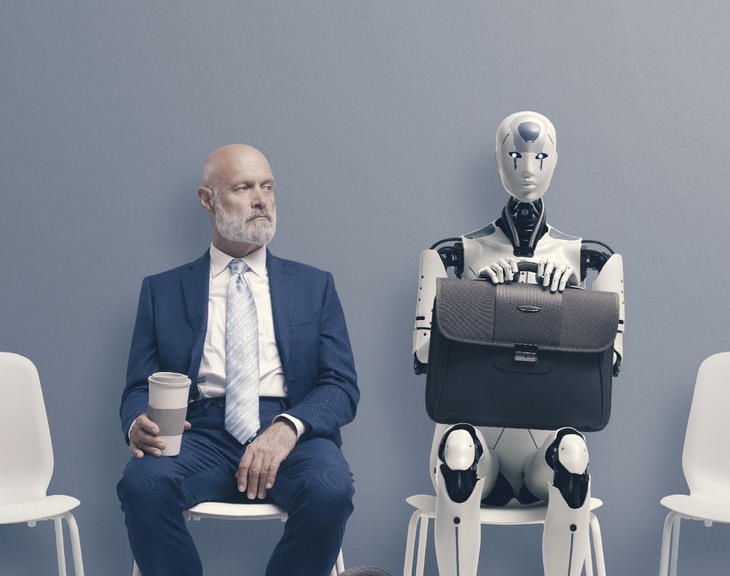Las Vegas’ workforce is the most at-risk for losing jobs to artificial intelligence, according to a recent report determining the U.S. cities where AI poses the biggest threat to employment.
Nearly 162,000 jobs here, or about 15.8% of the workforce, are considered “at-risk” for disruption by AI, based on an analysis from ChamberofCommerce.org, which provides research and product insights and reviews for small-business owners.
“With the introduction of tools like AI, obviously jobs that require more analytical skills are also at risk,” said Collin Czarnecki, a researcher with ChamberofCommerce.org, who noted that, historically, technology has primarily displaced jobs that require physical labor. “Whether it’s a bank teller, medical professional—there are, really, very few lines of work that won’t be affected by AI or automation in some way, shape or form.”
The report—which looked at the 10 most at-risk occupations based on data from the World Economic Forum, and used data from the U.S. Bureau of Labor Statistics to determine which cities might experience the most job losses due to AI—listed cashiers, retail salespersons and customer service representatives as the top three at-risk occupations in Las Vegas.
The next two cities with the most “at-risk” jobs were Miami and Louisville, Kentucky.
Many jobs in Las Vegas, due to its nature as a tourism hub, are already at risk for being displaced by automation, Czarnecki said, such as customer-service representatives, janitors and cleaners.
As technology advances, those occupations will be at greater risk of disruption. For example, he said, hotels could use AI to monitor and predict maintenance needs in guest rooms, make inventory decisions and engage with customers through chatbots or virtual assistants.
“So it’s sort of a two-sided coin in the sense that it can be helpful for those types of occupations,” he said, “but as this technology continues to advance, obviously, the risk of those jobs being threatened either with reduced hours or total elimination is definitely in the picture.”
Managing how enhanced technology affects jobs on the resort corridor was a sticking point last month during negotiations between the Culinary Union and resort companies on a new five-year contract. Ted Pappageorge, the secretary-treasurer for the union, said the contract includes language that gives workers “the ability to have a say in how technology impacts our work.”
Despite an increase in automation or AI, some consumers will place a premium on human interaction or service, and some will shirk certain technologies because of security risks—like the major cyberattacks that took place at leisure and hospitality institutions in Las Vegas this year, said Andrew Woods, director of UNLV’s Center for Business and Economic Research.
“The idea that we’re going to get rid of all human workers, I think, is overblown,” he said.
What’s important to note, as well, is that AI may disrupt jobs—but it’s not going to destroy them, Woods said, citing similar technological advancements over the years that have not overrun the workforce.
“Certainly technology is going to have its benefits for everyone and it’s going to have its downsides, as everything does,” Woods said. “And it’ll be interesting … to see how much consumers accept that.”
In anticipation of the growth of AI, Czarnecki suggested that people in at-risk jobs take advantage of training, certifications or other opportunities that could build up their skills, and especially those that can’t be replaced by AI—including creativity, critical thinking and problem solving.
Also, be willing to pivot to a new career, if necessary, he said.
“It’s really just an interesting time right now, to think that it’s only been a year, really, since Chat GPT has been introduced, and we’re already seeing disruption in several different ways across various occupations,” Czarnecki said. “We’re living in this continued evolution of what disruption and job losses might look like due to AI.”
